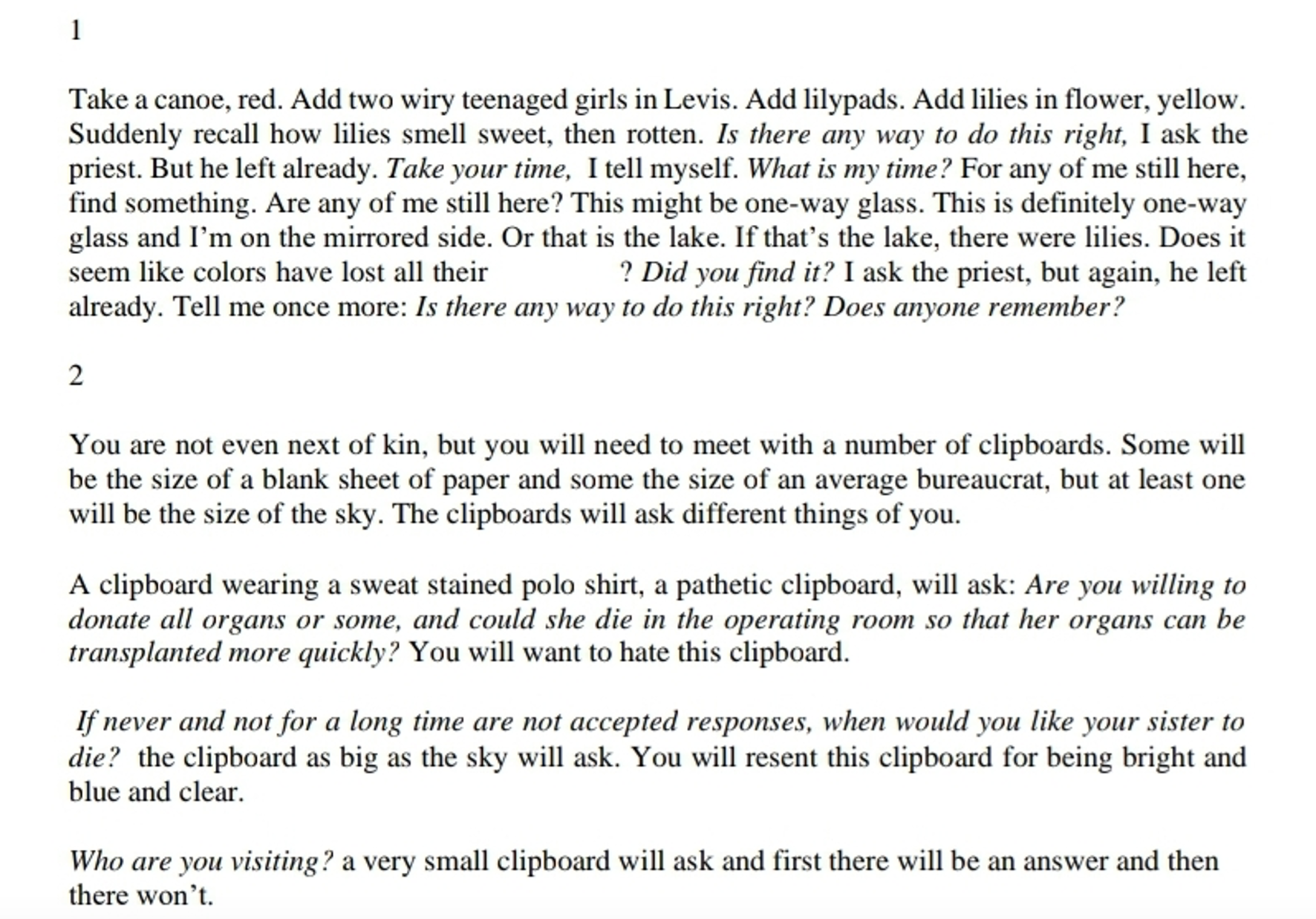I.
With you,
Binondo is a dream
of sun &smoke—)
You are waiting for me
on the Carriedo fountain
when I get there,
(only a boy
by himself)
before you see me
walking youwards—
Go on, lead the way.
I'll follow you
under arch
and telephone wire,
from gold shop
onto heaven,
wherever we're going.
For a second, the waitress thinks
I'm a woman, (and yours
and we laugh about it.)
I order asado and you order something
with a name
I no longer remember.
Why
are we here?
Do I want it
to matter?
Across me,
(the dishes long empty between us)
it is easy to imagine you in love.
Ahead of me,
(in the sun)
it is easy to imagine you.
Beside me,
(on the street)
it is easy to imagine.
With me,
(in the jeep)
it is easy.
II.
On Vito Cruz, we step out
into the rain,
habagat wet &heavy
on our skin.
Somehow, we've both forgotten
our umbrellas, so instead,
we run:
nameless to Manila,
Past her buildings,
her stray dogs, &her sky.
Tell me:
Can we keep
going on like this?
Crossing roads
which have turned into rivers;
treading like kids
under eaves
which cannot hold
even the weight
of their own water.
Like everyone else, you and I are desperate
to stay dry,
(which is to say, untouched,)
&fail—
escaping what we
cannot.
III.
Alone with you
here &like this,
there is nothing
to say—)
It is 8 AM.
You're late to class again
and beautiful
and I cannot tell you why.
I watch
(when I can):
The classroom light
across your face;
Whatever I can make
of your body
underneath your baggy clothes, and
Yes,
of course,
All of this
is senseless.
(What am I to you
if just another
unwoman?)
You sit
beside me.
You hand me a chico
when I tell you I haven't eaten yet.
You tell me sorry
when the aircon is too cold
and you'd left your jacket
I could've borrowed,
And really, it's
okay—
(meaning, you
are already everything
ungiven—
meaning, what, then,
would be enough?)
IV.
The bridge to Recto
is long
and kills me,
but you're here,
as miraculous
as memory.
Of course,
we have the same way home.
(Tell me nothing
about what this
has never meant—)
Instead, look
at what God alots us:
two seats on the train
to Antipolo,
just for you and I
to take—
So we take them.
We let here
be elsewhere:
my shoulder against yours,
your shoulder against a stranger's,
The world behind us
in the window.
(To Legarda,)
your silence is the closest thing
to your love.
(To V. Mapa,)
I breathe
and you smell
like a man.
(To Gilmore,)
your girlfriend's name
is a harana
I've imagined
again and again
until we come
to your stop.
This
is you,
and this
is us:
The doors sliding open,
the boy stepping off,
and whatever I am
left in the train moving on—)
(I am sorry I cannot be
a beautiful woman
in this city for you.)
On the train (which is to say,
in these bodies),
we are either ever left
or arriving:
always ahead
and behind each other
at once.
(If only
elsewhere,) but here—
All lines end at some point,
anyway.
With you,
without.













